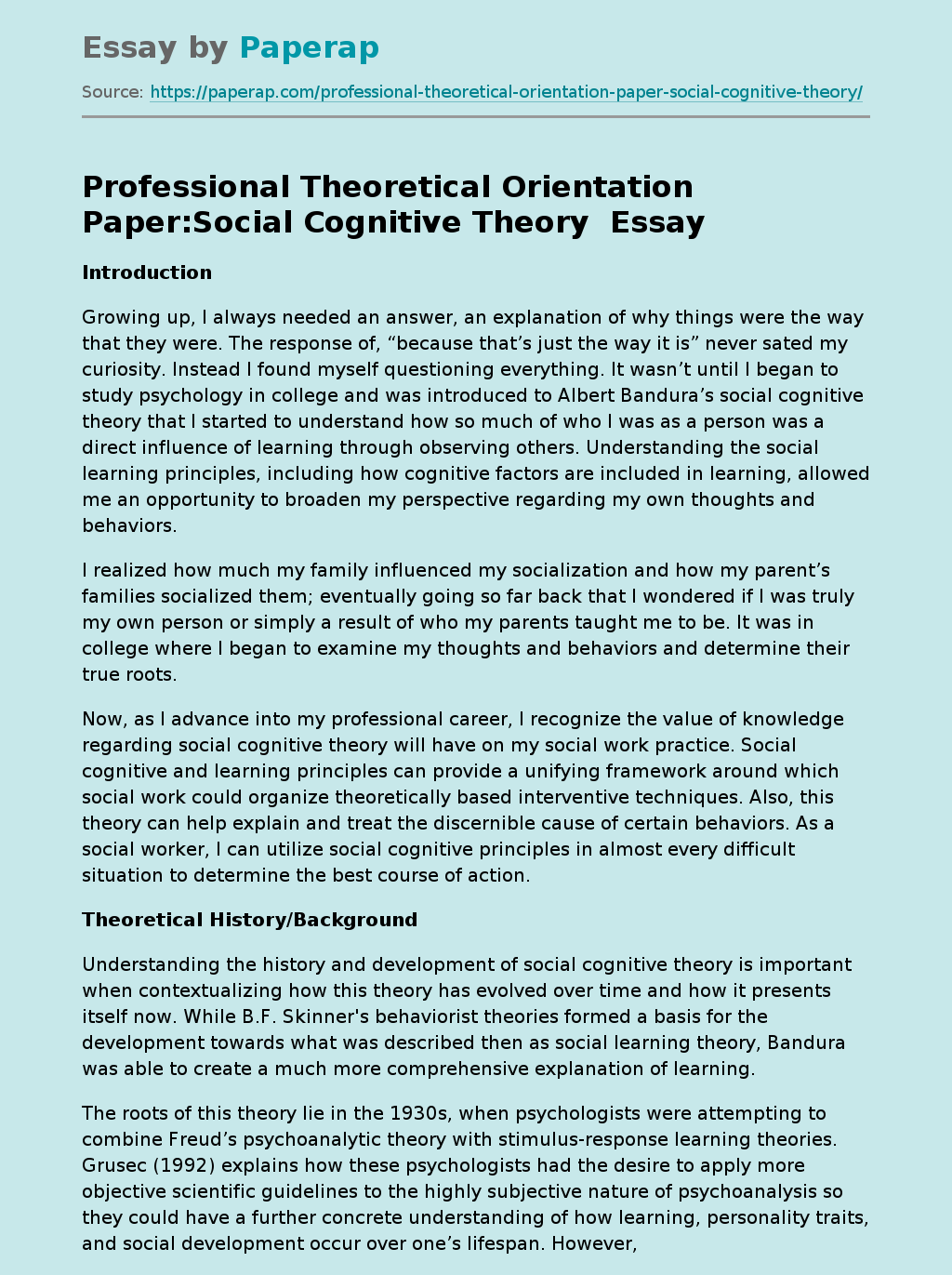Professional Theoretical Orientation Paper:Social Cognitive Theory
Introduction
Growing up, I always needed an answer, an explanation of why things were the way that they were. The response of, “because that’s just the way it is” never sated my curiosity. Instead I found myself questioning everything. It wasn’t until I began to study psychology in college and was introduced to Albert Bandura’s social cognitive theory that I started to understand how so much of who I was as a person was a direct influence of learning through observing others.
Understanding the social learning principles, including how cognitive factors are included in learning, allowed me an opportunity to broaden my perspective regarding my own thoughts and behaviors.
I realized how much my family influenced my socialization and how my parent’s families socialized them; eventually going so far back that I wondered if I was truly my own person or simply a result of who my parents taught me to be. It was in college where I began to examine my thoughts and behaviors and determine their true roots.
Now, as I advance into my professional career, I recognize the value of knowledge regarding social cognitive theory will have on my social work practice. Social cognitive and learning principles can provide a unifying framework around which social work could organize theoretically based interventive techniques. Also, this theory can help explain and treat the discernible cause of certain behaviors. As a social worker, I can utilize social cognitive principles in almost every difficult situation to determine the best course of action.
Theoretical History/Background
Understanding the history and development of social cognitive theory is important when contextualizing how this theory has evolved over time and how it presents itself now. While B.F. Skinner’s behaviorist theories formed a basis for the development towards what was described then as social learning theory, Bandura was able to create a much more comprehensive explanation of learning.
The roots of this theory lie in the 1930s, when psychologists were attempting to combine Freud’s psychoanalytic theory with stimulus-response learning theories. Grusec (1992) explains how these psychologists had the desire to apply more objective scientific guidelines to the highly subjective nature of psychoanalysis so they could have a further concrete understanding of how learning, personality traits, and social development occur over one’s lifespan. However, the assumptions of behaviorist theories did not provide much explanation of how individuals develop behavioral patterns or ideas about consequences, especially when they had not yet experienced them. By leaving out many of the psychoanalytic ideas that directly
Professional Theoretical Orientation Paper:Social Cognitive Theory . (2021, Dec 14). Retrieved from https://paperap.com/professional-theoretical-orientation-paper-social-cognitive-theory/

